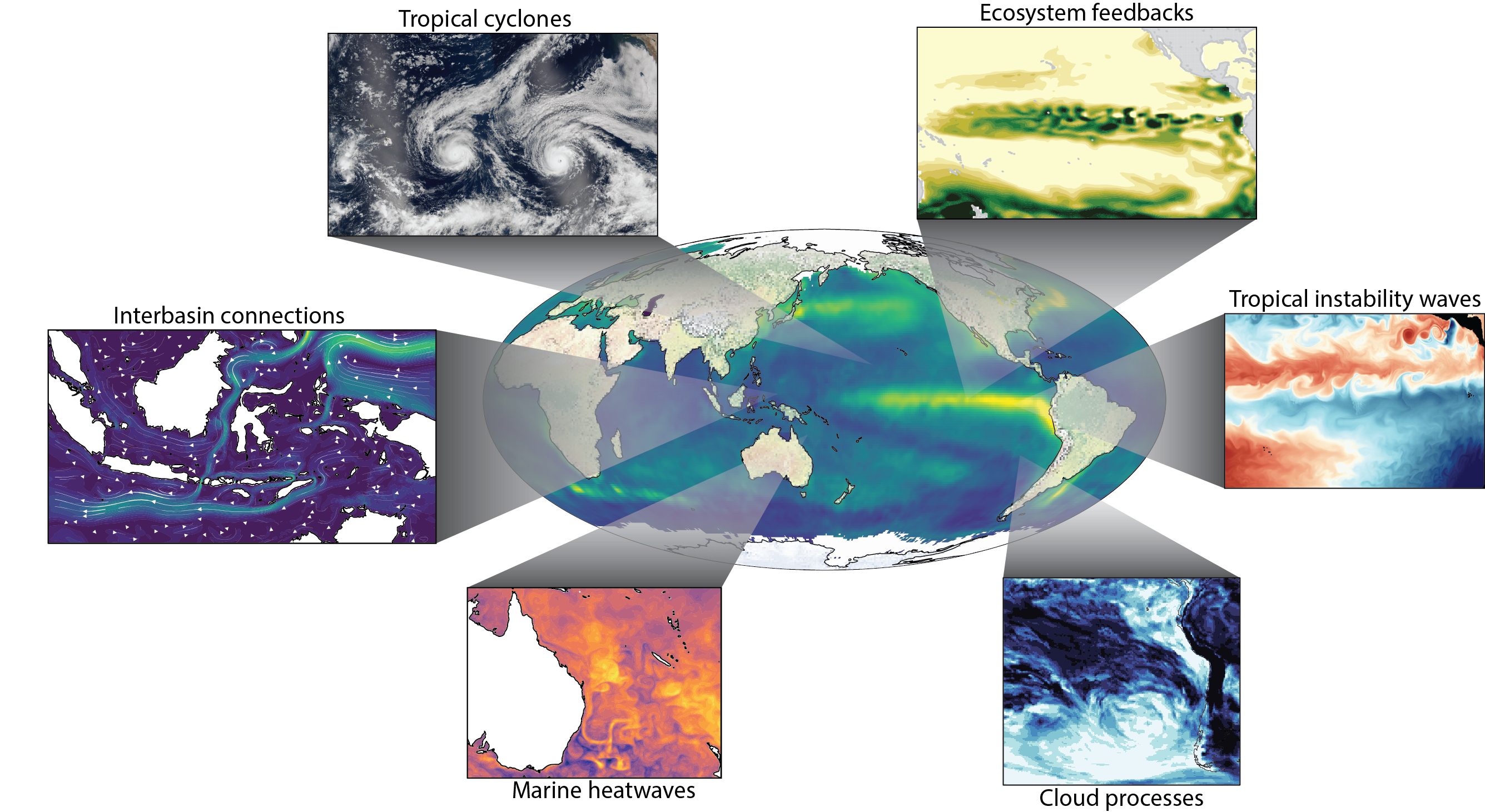New book advances knowledge of El Nino in a changing climate
 Potential foci of future ENSO research includes some of the physical processes that require advancements in observing systems and climate model resolution and complexity. Credit: Karamperidou et al. (2020) in McPhaden et al. (2020).
Potential foci of future ENSO research includes some of the physical processes that require advancements in observing systems and climate model resolution and complexity. Credit: Karamperidou et al. (2020) in McPhaden et al. (2020).
Numerous SOEST researchers are contributing authors of the new book El Niño Southern Oscillation in a Changing Climate, the most up-to-date comprehensive review on current knowledge on El Niño Southern Oscillation (ENSO). SOEST atmospheric scientists, oceanographers and climate experts Christina Karamperidou, Fei-Fei Jin, Tim Li, Malte Stuecker, Han-Ching Chen, Sen Zhao, Michiya Hayashi and Lichen Geng are among 100 co-authors of this publication.
The ENSO is a year-to-year fluctuation of the coupled ocean-atmosphere system that originates in the tropical Pacific. Warm El Niño and cold La Niña phases of ENSO alter atmospheric and oceanic circulation, weather patterns, and extreme events, affecting human and natural systems around the world. ENSO variability and its profound social and economic consequences are occurring today in the context of a global climate system that is rapidly changing.
“El Niño and La Niña events exert their influence worldwide, including in Hawaiʻi,” said Karamperidou, SOEST atmospheric scientist and co-author of the book. “Our participation in the international collaboration that led to this book continues the decades-long tradition of the University’s contributions to understanding and modeling ENSO.”
The book, recently published by the American Geophysical Union, presents the latest advances in ENSO research, including theories, models, observations, paleo-reconstructions, seasonal prediction, future projections, teleconnections, and some of the most pronounced environmental and ecological impacts.
“A better understanding of the physical processes responsible for El Niño and La Niña will not only result in improved seasonal forecasts, but also provide us with the key tools to constrain uncertainties in how global temperature and rainfall patterns will change in the future due to our continuing and accelerating greenhouse gas emissions,” said Stuecker, SOEST oceanographer and co-author of the publication.
For more from the editors on our current understanding of how ENSO might change in the future and research challenges that still remain, read the Editors’ Vox from AGU.




